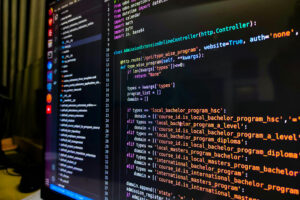PHILIPPINE businesses should adopt low-code or no-code platforms to quickly develop apps as they digitize their systems, according to software-as-a-service Indian startup Kissflow.
“The bigger challenge is that every business needs to digitize fast because you never have the luxury of decades to build the systems,” Dinesh Varadharajan, chief product officer at Kissflow, Inc., said in a video interview on Feb. 10.
“There is a need to build these systems very quickly with a limited skill set that is available in the market,” he added.
Using a no-code platform, users can customize apps without coding knowledge, while a low-code platform would need a bit of coding skills to create apps.
When using a no-code platform, tech professionals can just “drag-and-drop” to build their app, without writing code.
Kissflow specializes both in low-code and no-code platforms, using artificial intelligence (AI)-suggested fields based on the user’s ideal workflow.
It serves more than 50 companies in the Philippines and 362 globally from the banking, technology and insurance sectors.
“Traditionally, we look at building an application using a coding paradigm, and it takes six months,” Mr. Varadharajan said. “If you use Kissflow, you’ll be able to do it in matter of days or weeks.”
Despite this, low-code and no-code platforms still need human insight to ensure the accuracy and security of its apps, he added.
The Philippines’ rapid digital transformation makes it a key market for Kissflow, according to Mr. Varadharajan.
He noted that Western economies find it difficult to use extremely modern technology because they have invested a lot of money in legacy systems.
“But if you look at the Philippines, they don’t have to go through the same journey,” he said. “They can directly come to an extremely modern digital environment because they don’t have legacy systems.”
The Philippine digital economy’s potential and the push for increased internet penetration bodes well for Kissflow’s market expansion, Mr. Varadharajan said.
The country’s digital economy is expected to grow to as much as $150 billion in gross merchandise value by 2030 from $31 billion in 2024, according to a 2024 report by Google, Temasek Holdings and Bain & Co. — Beatriz Marie D. Cruz
